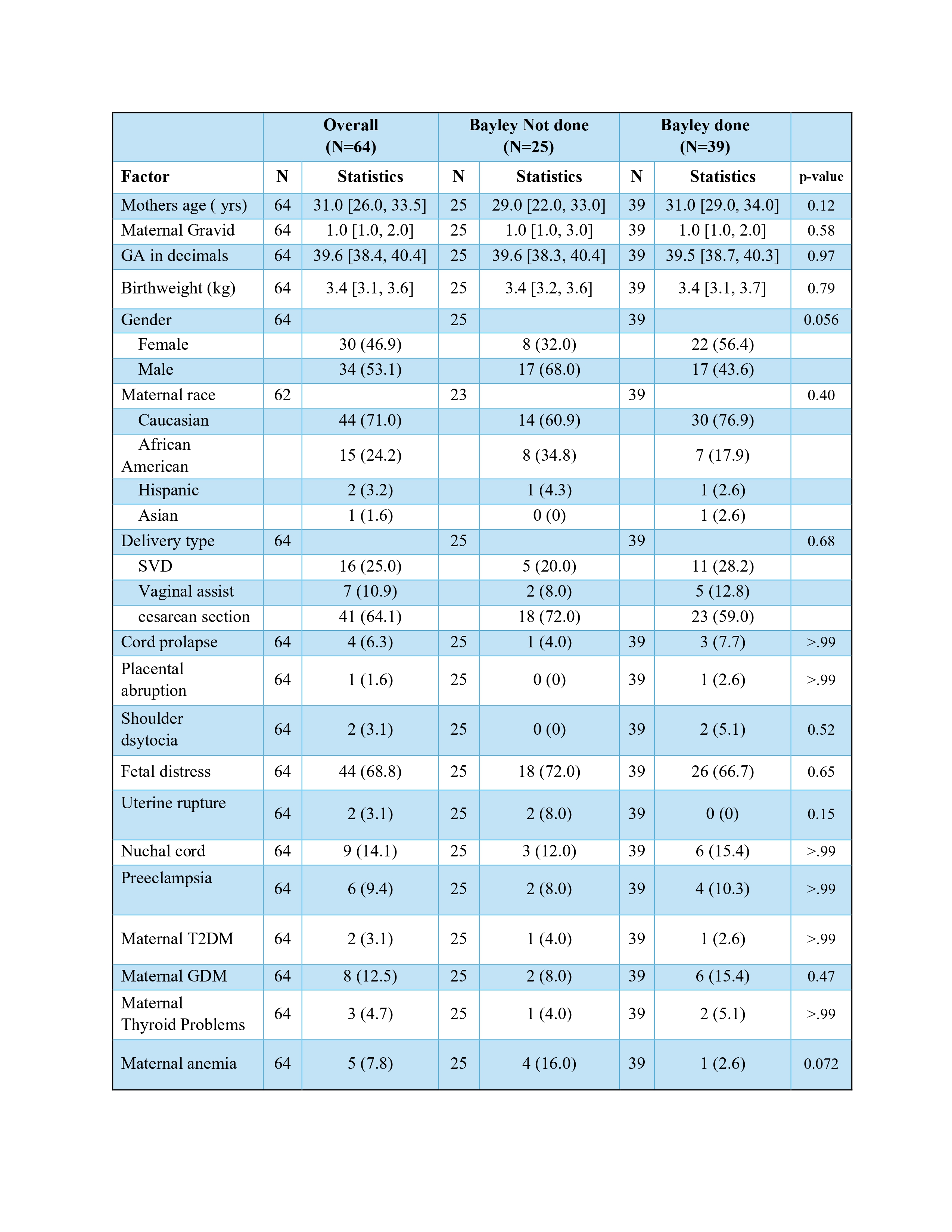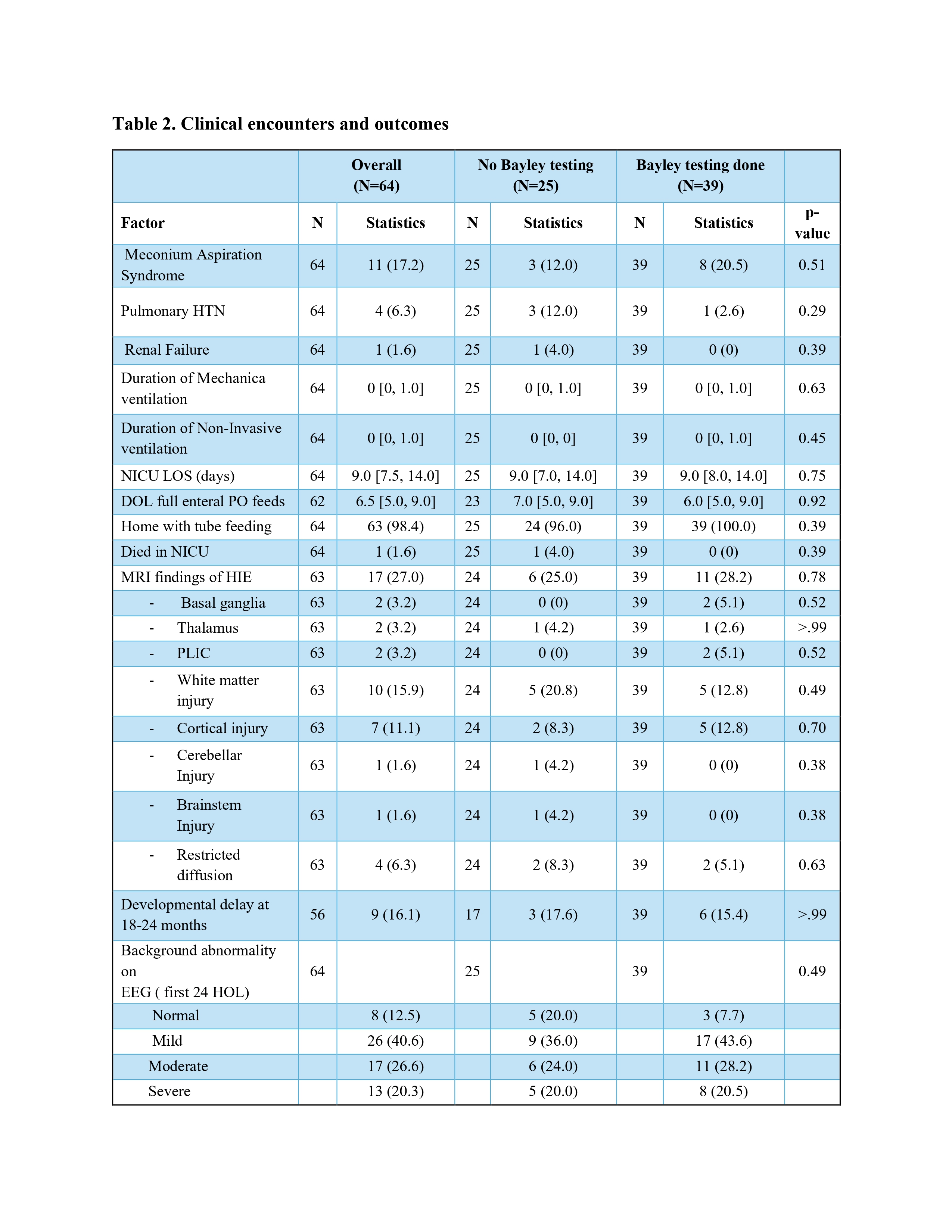Neonatal General 2: Neurology
Session: Neonatal General 2: Neurology
316 - Outcomes of Neonates with Mild Hypoxic-Ischemic Encephalopathy treated with Therapeutic Hypothermia: A Single-Center Retrospective Cohort Study
Friday, April 25, 2025
5:30pm - 7:45pm HST
Publication Number: 316.5875
Rakesh Lavu, Cleveland clinic children’s, Beachwood, OH, United States; Mariana Coelho, CLEVELAND CLINIC FOUNDATION, Parma, OH, United States; Abdul Kader S. Surti, Cleveland Clinic Children's, Lorain, OH, United States; Hany Aly, Cleveland Children’s Hospital, Cleveland, OH, United States; Ceyda Acun, Cleveland Clinic Children's Hospital, Cleveland, OH, United States
- RL
Rakesh Lavu, MD
Fellow
Cleveland Clinic Children's
Beachwood, Ohio, United States
Presenting Author(s)
Background: Neonatal hypoxic-ischemic encephalopathy (HIE) significantly contributes to neurodevelopmental impairment and mortality. Therapeutic hypothermia (TH) is the standard care for moderate to severe HIE, though traditionally, mild HIE has not been treated with TH. However, many centers now offer TH for mild HIE. In a prospective study, 16% of untreated mild HIE infants showed disability at 18–22 months. We plan to review our center's data to assess short-term and 2-year outcomes for mild HIE infants treated with TH.
Objective: This study aims to determine short-term and neurodevelopmental outcomes at 18-24 months in mild HIE infants treated with TH and to compare outcomes with and without Bayley screening..
Design/Methods: This retrospective cohort study includes neonates ≥36 weeks of gestational age (GA) admitted with mild HIE and treated with TH between 2012-2022. Exclusion criteria included severe congenital malformations or chromosomal anomalies. Data analysis focused on short-term outcomes, neuroimaging, length of stay (LOS), EEG abnormalities, and Bayley evaluations. We used Wilcoxon rank sum for continuous or ordinal data and Pearson’s chi-square or Fisher’s exact test for categorical data.
Results: Sixty-four infants were analyzed: 53% male, 71% white, 64% delivered by cesarean section, median GA 39.6 weeks (IQR [38.4, 40.4]), median maximum initial lactate 9.5 (IQR [6.3, 14.0]). Assisted ventilation was required at 10 minutes for 66%, with 5% needing epinephrine and 14% chest compressions. MRI indicated HIE in 27%, and 47% had moderate/severe EEG abnormalities within 24 hours. Median time to full enteral PO feeds was 6.5 days (IQR [5.0, 9.0]), and median NICU stay was 9 days (IQR [7.5, 14.0]). One infant died in NICU; 98% were discharged home on full PO feeds. Out of 64 neonates, 39 had Bayley evaluations at 22 ± 2 months, with 6 (15%) showing abnormal scores ( < 85 in language, cognitive, or motor domains). Among 17 infants without Bayley evaluations, 3 (18%) had documented developmental delays. Comparison of groups with and without Bayley screening revealed no significant demographic or short-term outcome differences, such as abnormal MRI, LOS, or EEG. Developmental delays were noted in 16% of neonates, with 13% experiencing seizures, primarily within the first 24 hours.
Conclusion(s): Our single-center study suggests that neurodevelopmental outcomes in neonates with mild HIE treated with TH align with those reported in prospective studies of infants not undergoing TH. However, the necessity for randomized controlled trials to ascertain TH's efficacy in mild HIE is emphasized.
Demographic data, delivery and perinatal characteristics

Clinical encounters and outcomes


